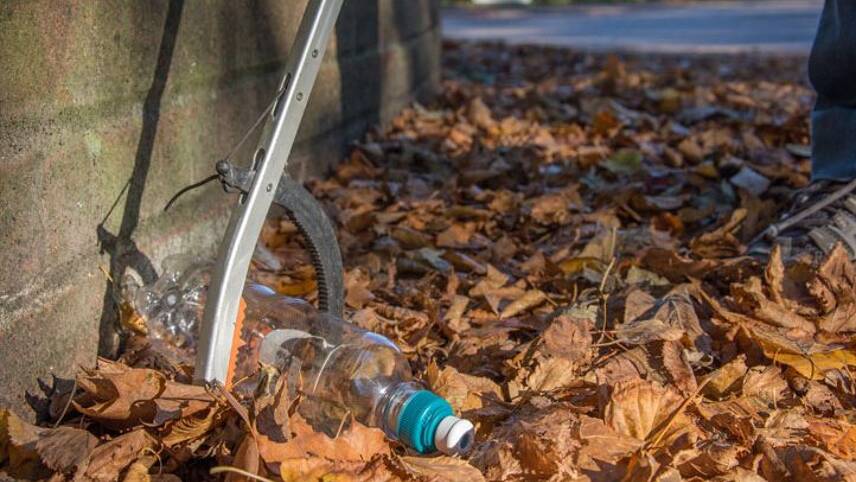Register for free and continue reading
Join our growing army of changemakers and get unlimited access to our premium content

As the UK Government begins to shift its focus to the post-Covid-19 economic recovery, it is increasingly clear that the environmental consequences of the pandemic will be felt – and seen – for generations to come.
Early optimism about the short-term environmental benefits brought by global restrictions on human movement, have since been overshadowed by the long-term damage caused by the surge in reliance on single-use products.
It’s estimated that 129 billion disposable face masks and 65 billion gloves have been used every month during the pandemic globally. In the UK alone, litter data crowdsourced by the public using Planet Patrol’s app reflects the sharp rise and widespread use of disposable PPE, accounting for 1.6% of all litter recorded between July – December 2020. That’s more than one in every 100 pieces of litter found, despite really only entering our natural Environment in the past year.
In addition, the prevalence of disposable coffee cups in Planet Patrol’s litter report has increased by more than 130% year-on-year, as fears around virus transmission shifted behaviour. Uncertainty around hygiene standards and the contamination risk from reusable containers has triggered higher demand for single-use alternatives – both from retailers and the public as takeaway services resumed. This is despite the World Health Organisation (WHO) reassuring the public that reusables posed no greater contamination risk, and a signed statement published by 119 scientists across 18 countries just weeks later in July 2020, reiterated these facts.
Plastic packaging accounted for 21.6% of the total litter recorded in Planet Patrol’s app in 2020 – unsurprisingly the largest category by some margin. This, set against the backdrop of an estimated increase in plastic pollution of over a million tonnes by 2030 in the UK, reinforces the need for companies to focus on commitments, targets and transparent plastic reporting in order to drive usage down. Adopting and favouring non-plastic materials may be perceived as a greener alternative, but these single use materials (aluminium cans and glass bottles for example) are still prevalent in nature and causing devastation to ecosystems. The problem runs far deeper than simply educating the end consumer.
By collaborating with NGOs and grassroots campaigners – often with conflicting values – businesses can act as corporate activists. This approach is a crucial passage to progress, at a time when welcoming uncomfortable conversations that build the pressure and tension, create the pivotal changes needed to improve environmental standards. Particularly in light of the series of delays to environmental consultations and rollbacks on proposed bans by Government, which can only suggest a lack of prioritisation or desire to truly ‘Build Back Better’. At this point, businesses have an unprecedented opportunity to step up and drive a green economy in the recovery from Covid-19, trailblazing the way without waiting for legislative changes.
Educating consumers; choice editing at point of sale; investing in eco-design innovation; and, crucially, overhauling the UK’s flawed waste management infrastructure, so that we deal with the waste we generate in the UK, and refrain from shipping this environmental mess to – invariably – the developing world. This will alleviate pressure, but the priority must remain with removing reliance on single-use plastic – and other unnecessary materials – from source with urgency if we are committed to eradicating this environmental pandemic.
Join the conversation during edie’s Circular Economy Week
This week, edie celebrates its Circular Economy Week – an exclusive editorial campaign dedicated to accelerating the shift to closed-loop models of production and consumption. Read more about the full schedule and find out how to get involved here.
The headline attractions of Circular Economy Week are the Inspiration Sessions, taking place on Thursday (25 March) from 1pm- 4pm GMT. The three events range from Q&A style debates with circular economy experts, to business-led panel discussions and a masterclass. Experts from organisations including the Ellen MacArthur Foundation, Zero Waste Scotland and The Body Shop are taking part.
For full details and to register, click here. Tickets, which give holders access to all three events live and on-demand, cost £49 plus VAT.



Please login or Register to leave a comment.